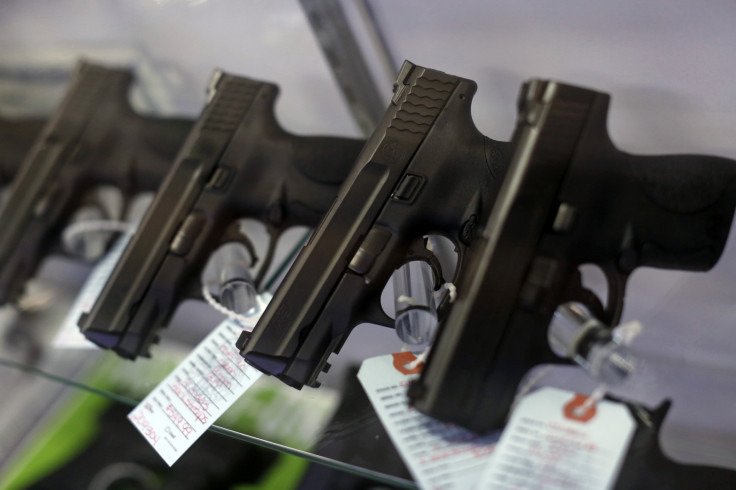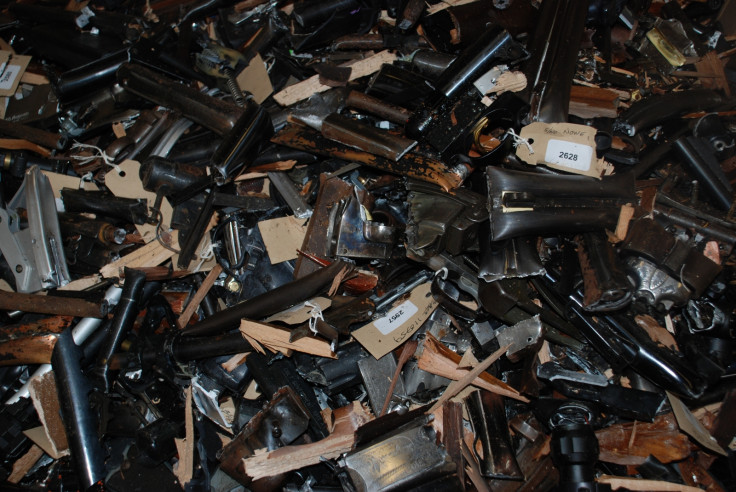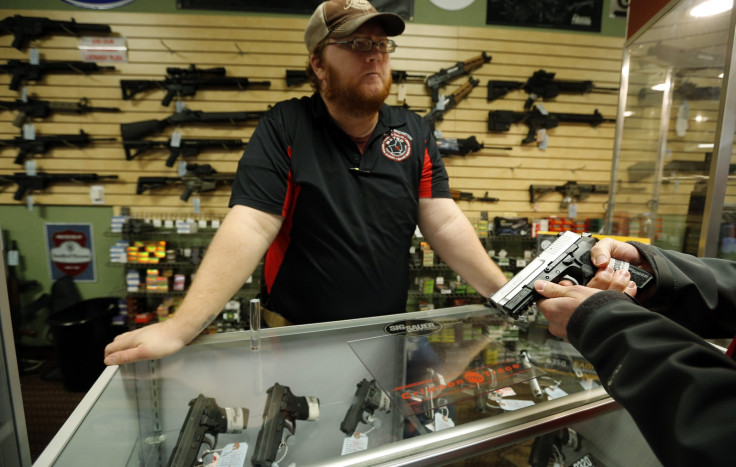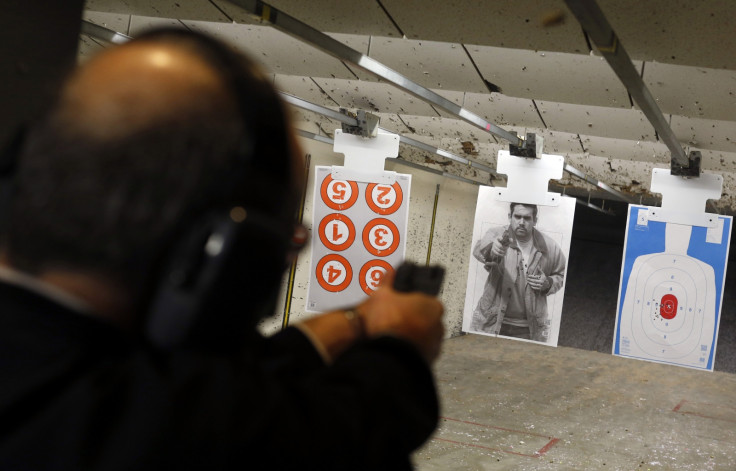Guns Still Rule America Despite Tragedies Like the Ferguson Shooting

I've been shooting guns my entire life. I started with a Martini action, 12-gauge shotgun - a real collector's item, designed by an almost 200-year-old company called Greener. Since then, I've moved to a double-barrel. It's nothing flashy – some no brand thing my dad got from a tackle shop – but it fires straight and it's easy to clean.
Between these two guns, which I regularly use for clay pigeon shooting, there have been several air rifles, some smaller calibre shotguns and a .177 pistol. I've been around firearms since I was a child, and through that exposure have grown immune to their loudness and heaviness – the things that make them intimidating to first-time users. I'm comfortable with guns. But I hate them.
Owning a gun makes me feel intensely grubby - like I'm exacerbating a larger cultural problem - but I'm weirdly proud of myself for enduring. I practise with firearms not because I like them, but because I feel a responsibility to understand them - to see first-hand how they work, what they're capable of, and what the laws and attitudes around them are like.
When conversations about gun control come up, often in relation to shootings in the US, I'm happy to pull rank and say that despite my lifelong dealings with responsible sport shooters, I'd still want to see every variety of gun banned - assault, hunting, or otherwise. The few hours I get on a Saturday to go shooting with my family simply aren't worth it if they give lobbyists an excuse to keep guns available in shops.
UK versus US Gun Culture
Of course, when it comes to guns, the UK is very different to America. In Britain, only rifles and shotguns are legal and you have to have extensive permits and proof of intent before you can own one.
Even then, it must be stored in a locked cabinet and in a separate room to any ammunition, something which the local police will visit your house to spot check every five years.

It's also illegal to load your gun with more than three cartridges at one time - even if you own a model of 12-gauge which can carry eight shells, as many people I know do, you can legally only chamber three rounds.
The use of guns in the UK is limited to what people need for professional or recreational purposes, not what they want.
America's gun legislation by contrast is based around the unbending capitalist ideal that as long as the customers can pay for it, they can have whatever they like.
Gun Violence Plagues the US
I recently travelled to Anaheim, a city in California about thirty minutes drive from Los Angeles. On my first night in the hotel, the local NBC TV news reported on a 38-year-old man named Habib Zekajj who had been shot and killed that day while eating at a McDonald's in Palmdale, another city, in the centre of LA county.
Meanwhile, ABC was reporting from the funeral of Shaun Diamond, a 45-year-old police officer shot while serving a search warrant on a house in Pomona. He was hit by a single shotgun blast, fired from inside the house, and died the following day in hospital.
Even before turning on the TV I'd encountered plenty of guns. The immigration officer checking my passport at LAX was carrying a loaded handgun, as were the airport police. And of course, the LAPD officers directing traffic on and off the concourse had pistols.
With so many guns around me, it was only natural that on my last day in America, I ended up at a shooting range on the outskirts of Orange County. It was a small place, in the middle of an industrial estate, but even as I pulled up in the taxi I could hear the sounds of gunfire from inside. As I said, I've grown accustomed to the reports of shotguns over the years, but the noise of rifles, handguns, and revolvers is somehow still frightening.
I'm not sure why. Maybe it's because, unlike the double-barrel I use for the clay pigeons, these guns are built specifically for killing people. The Glock 17, which I'd later get to try out, has no other purpose - it isn't a hunting weapon, nor is it Olympic competition standard. It's just a people killer.
So I was more than nervous. And having watched network news for three nights, as well as endless documentaries, TV shows and films which stereotype America as an ultra-violent nation of guns, I was expecting the owners of the range to be stand-offish and cold, like the people who turn their heads when a cowboy walks into a saloon.
Tools of Murder used for Hobbyist Pastime

It wasn't quite like that. There were assault rifles on the wall and little plastic bags containing spare clips for handguns, decorated with photographs of half-naked women, but the atmosphere was not unlike the shooting ranges in England.
These were nice guys. They were sensible. The instructor gave me a thorough run through of how to hold and aim the pistol, and told me that since this was my first time, I wouldn't be allowed to cock or reload it – he'd do that for me.
We went through to the shooting range, wearing ear and eye protectors, and he stood by as I squeezed off a few shots. It was very sedate. He told me about his daughter going to college, how business had been lately – it was just friendly. Considering the ubiquity of guns throughout the rest of LA county, this place, an ostensible hub for firearms, was paradoxically calm.
Never did I get the impression that these guys owned guns because they wanted to kill people, or even because they thought they were necessary for home defence. It was a hobby, like any other. The shop was a kind of social junction where people could talk and, in essence, pretend for a few minutes that they were an action hero.
The pleasantness was slightly tempered by another guy on the lane next to me, who was testing three different varieties of .44 magnum. That's a scary gun, massive and much louder than anything I've heard in person. Again, it seems to have no purpose other than to murder – if everyone else was here just for the sport of it, this guy had come for the power fantasy.
Otherwise, the gun range felt like nothing more sinister than a fishing bait shop or a bridge club. These guys had been raised on guns – they were in their culture. And while I'd come to America worrying about how the innate presence of guns might desensitise people to the damage they cause, I actually felt like these men, in the shop, were more responsible about guns than anyone in Britain.
It felt like there was an argument (almost) for the normalisation of guns, as if by being around them since birth, a person would come to regard them as mere objects and not be seduced by the power, the style, the "coolness." These guys weren't fascinated by guns. Whereas the people I meet in Britain have good sense around firearms because they've been brought up to fear them, in this shop, the people seemed similarly sensible, as they'd long developed an immunity to any allure guns might have.
Can guns keep everyone safe?

But then I left, and remembered that America averages around 9,000 gun murders a year. According to the FBI, California, the state I was standing in, recorded 1,900 homicides in 2012 - 70% of which were committed using firearms.
However friendly or reasoned the men in the gun shop might have seemed, they would still sell a bag of handguns to anyone with cash and a permit. I'd fallen, perhaps, for the capitalist shtick. They'd been nice because they want customers to buy. They'd made it seem normal because to flag the idea that all these guns were dangerous would effectively end their business.
On the way back to the airport, the taxi driver who'd noticed that I was from Britain, asked me about the gun laws. I explained how they were stringent, and things like pistols and machine-guns were banned.
"But what would you do if you were invaded?" he asked. "How would you defend yourselves?"
The incredulity in his voice made something very clear - despite the masses of guns coursing through America, nobody there feels safe.
© Copyright IBTimes 2024. All rights reserved.






